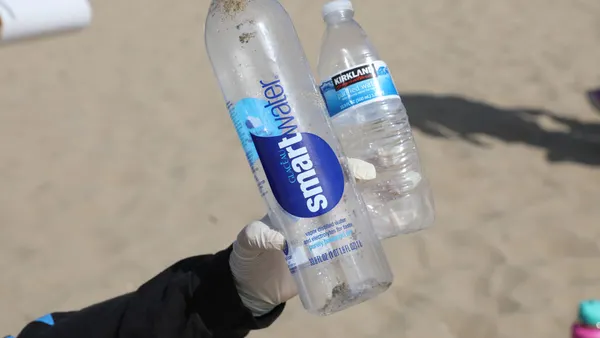Dive Brief:
- New research from the national campaign Recycle for Wales has found that food waste recycling is much less common among younger residents than older ones, driven largely by concerns about the mess and smell, as reported by BBC News.
- According to analysis of national data, 43% of people 18-24 and 34% of people 25-34 do not recycle their food waste. This is compared to 5% of people 65 and over that don't recycle.
- Recycle for Wales also found that 18% of single households don't recycle, compared to 7% of households with couples. They also broke it down along gender lines, showing that 16% of men and 10% of women throw away food waste.
Dive Insight:
A recent report from Eunomia and Resource Media showed that if it were a separate country Wales would be the world's third best recycler behind Germany and Taiwan. The Welsh government has set a goal of 70% diversion by 2025 and "zero waste" by 2050, consistently outperforming all others in the U.K. Yet an estimated 350,000 metric tons of food waste are still being disposed of in the country every year.
The proposed Circular Economy Package currently being discussed by the European Parliament includes a mandatory food waste diversion goal. Though it's still too early to tell what if any parts of that package will be adopted by the U.K. after the planned exit from the E.U. Recent comments from the U.K.'s resources minister indicate any conversations around waste policy are on hold until after the recently announced general election in June. Based on its current long-term strategy Wales is set to continue in the same direction and hopes to see more progress by focusing on millennials.
As this demographic gains growing influence, now comprising the majority of the U.S. workforce, their recycling preferences and behaviors are gaining more attention from the industry. Recent surveys in England and the U.S. found higher levels of confusion or distrust about the recycling process among millennials. Though another recent study showed them caring more about having access to recycling in the workplace than older coworkers. Finding a way to get millennials involved with recycling all aspects of the waste stream will be key to improving diversion rates in Wales and beyond.











